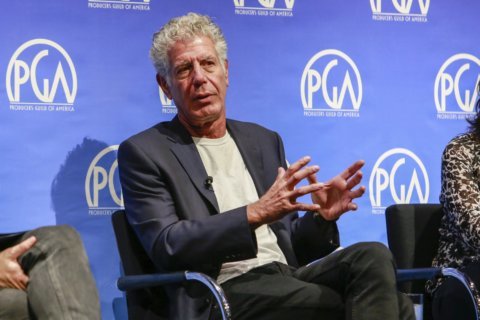WASHINGTON — The deaths of Kate Spade and Anthony Bourdain this week serves as a reminder of the hidden pain that so many people carry; pain that can draw them into unthinkable acts.
There are more than 100 suicides a day in the United States, according to the American Foundation for Suicide Prevention. It’s the 10th-leading cause of death in the nation — and much, much more prevalent than homicide. The nation’s suicide rate, in fact, climbed from 2007 to 2016.
Despite that prevalence, it is preventable, said Dr. John Sharp, a psychiatrist and professor at Harvard University.
“The upside to suicide is that there are ways to be sure that people are safe and get the help they need,” Sharp told WTOP’s Mark Lewis and Debra Feinstein. “Most people who are suicidal are depressed, and most depression is treatable.”
There can be other reasons as well, such as overwhelming life stress or another mental illness such as bipolar disorder. Regardless, it’s important for a concerned loved one to intervene with a direct question, Sharp said. Don’t be afraid to ask: “‘Are you considering suicide?’ ‘Do you feel like you might be better off dead?’ ‘Have you been thinking about actually ending your life?’
“And if you sense that they have been — if they say ‘yes’ or if you feel that that’s so — you can talk to them very directly about reaching out.”
Sharp suggested that they first turn to the National Suicide Prevention Lifeline: 1-800-273-8255. The lifeline can connect a caller with the necessary help.
While it is true that some people are so hellbent on suicide that they’ll lie about needing help, he said, most people aren’t that committed to ending their life.
“They’re at the worst ambivalent, and if you can be connected to them, you can connect with the part of them that wants to live,” he said.
“They will respond. You’ll see a flicker in their eye. They’ll cry. They’ll say, ‘Oh my god. It’s such terrible suffering.'”
And that’s when you tell them they don’t have to live with the pain, that help is out there, and that life is worthwhile, he said.
“Don’t give up,” Sharp said.






